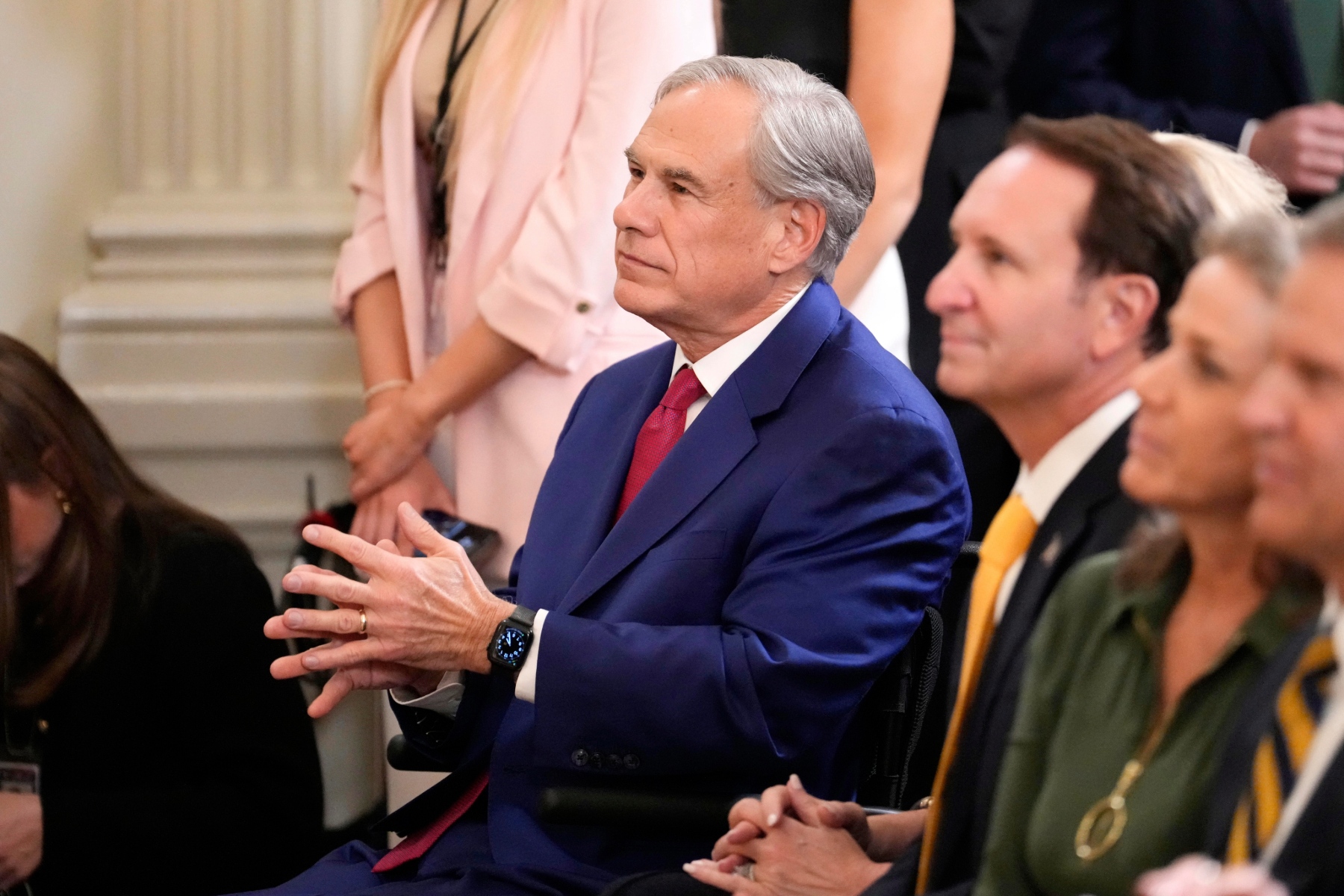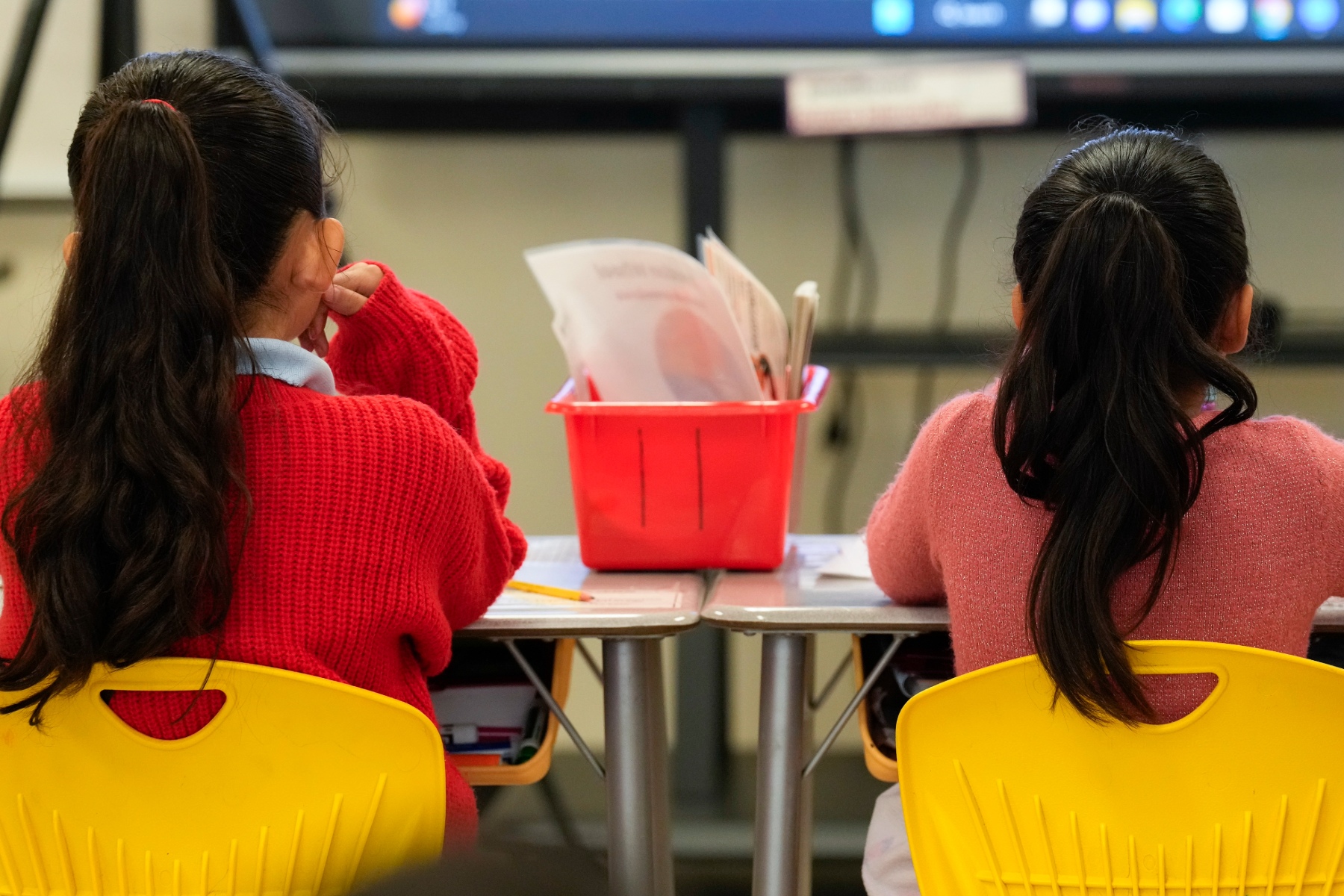“A direct assault on the Texas public education system.”
That’s how social justice groups like the Texas Freedom Network are describing the passage of a bill that would create a $1 billion school voucher program in the state. The Texas House passed Senate Bill 2 early Thursday, with support from Gov. Greg Abbott, who has championed school vouchers. These taxpayer-funded subsidies divert money away from public schools, allowing families to use them to cover their children’s tuition at private or religious schools.
“This is part of a coordinated strategy to dismantle public education statewide and nationally, since Donald Trump literally called Republicans and told them that they had to vote yes on this voucher scheme,” said Emily Witt, spokesperson for the Texas Freedom Network, a grassroots organization of religious and community leaders. “Republicans have done a very coordinated job of framing this as something that it’s not. It’s certainly not ‘choice.’ It’s going to really devastate a lot of public schools and rural communities here in Texas.”
The voucher bill’s passage has been characterized as a win for both Abbott and Trump. Abbott tried unsuccessfully to get voucher legislation passed in 2023. Trump, in January, issued an executive order directing the education secretary to explore ways to route federal funding to states and families interested in school choice initiatives, which give students the option to attend their preferred public, private, charter or religious school. Critics of vouchers, a controversial way to facilitate school choice, worry that they take away valuable resources from public schools. They also argue that private schools may exclude students with disabilities or who are LGBTQ+ or have LGBTQ+ parents. Students from low-income or rural areas may also struggle to access private school, as may those from certain ethnic groups or religious backgrounds. The voucher program does not guarantee students admission to private schools.
The approval of a voucher program in the nation’s second most populous state could create a ripple effect across the United States, where the voucher movement has gained momentum in recent years in places like Arizona, Arkansas, Florida and Wisconsin — often with the help of billionaire backers. The Texas bill next goes to the state Senate, where lawmakers in each chamber are expected to work out the disparities in their voucher plans such as how much money participants should get and which participants should be prioritized.
“It is absurd for Gov. Abbott and his pro-voucher allies to claim that a diversion of $1 billion in tax funds to private schools over the next budget cycle will not hurt our underfunded public schools, where the vast majority of our students will remain,” Ovidia Molina, president of education labor organization the Texas State Teachers Association, said in a statement. “That voucher drain will increase to $3 billion by 2028 and more than $4 billion by 2030 if this voucher bill becomes law, the Legislative Budget Board projects.”

In Texas, most students attend public schools, with an estimated 6 percent enrolled in private schools. Rural communities overwhelmingly attend public schools because of the dearth of private schools in such areas. Accordingly, voters in the country have typically opposed school vouchers, perceived as vehicles to help families in cities send their kids to private school. Even with the school voucher program, experts do not expect private schools to be inundated with new students from public schools.
“Most kids are still going to have to be served by public schools,” Witt said. “We do know that in other states where vouchers have passed, that most of the kids using those vouchers already were in private schools.”
While vouchers have been promoted as a way to help low-income families choose a quality education for their children, the subsidies often aren’t large enough to cover the tuition and fees associated with a private school education. The school voucher program the Texas House just approved is generous, as it will give families who qualify up to about $10,000 per child. The average K-12 private school tuition in Texas is over $11,000, with tuition for schools that specialize in special education topping $19,000 and elite institutions reaching as high as $40,000. Parents would need to make up the difference for tuition costs that vouchers don’t cover, a move critics of the subsidies say is out of reach for disadvantaged families.
“So it’s still going to benefit mostly wealthy families,” Witt said. “Let’s say that it does cover the cost of tuition. It’s not going to cover extracurriculars. It’s not going to cover transportation. Private schools are not required to offer free transportation to and from school like public schools are, and they also don’t have to accept every child.”
Religious institutions, she said, could turn away students who don’t belong to the faith affiliated with the school. A private school could accept a student with a disability only to discharge them later if the school doesn’t have the resources to educate that child or is no longer interested in doing so.
“They could essentially reject a child that they feel just doesn’t meet the culture of their school,” Witt continued. “That could be because a child comes from a low-income family. It could be because they’re not White. It could be because they’re LGBTQ or their parents are LGBTQ or not married.”
Private schools also don’t have to use standardized tests, like the State of Texas Assessments of Academic Readiness (STAAR), used in public schools to track student progress. The GOP-run Texas House, she said, rejected an amendment that would have required private schools to use standardized testing to measure student outcomes just as public schools do.
“I don’t know how we’ll see if this program works and how it benefits kids, especially kids with disabilities,” she said.
House Republicans tabled 44 amendments to the legislation, including one that would have led to a referendum on school vouchers in November, effectively blocking voters from deciding the issue.
The bill is an additional blow as public schools slash programs and raise class sizes under a budget crunch, Molina said in her statement.
“Texas already spends more than $5,000 less per student than the national average, ranking Texas 46th among the states and the District of Columbia,” she said. “The school finance bill also approved by the House will not come close to ending the state’s financial neglect of public education. The House’s $395 increase in the basic allotment, which hasn’t been increased in six years, will provide only a third of what is needed to cover districts’ losses from inflation alone.”
Supporters of the voucher program may not be happy with it a year from now, Witt predicts. In 2022, Arizona passed its universal school voucher program. It covers expenses related to private school tuition, homeschooling and related academic needs, but now the program faces a backlash as the costs associated with it have led to questions about oversight and funding for public schools.
“Republicans have sold people a lie,” Witt said. “They’ve said repeatedly that it won’t harm public schools, and there’s just no way that it won’t. And I do think that’s their goal. I genuinely think that their goal is to eliminate public education, and this is the first step there. A year from now, people are going to see that the neighborhood schools in their communities are shuttering or having to cut resources for students, and they’re going to be really upset. And I think that there’s going to be hell to pay at the ballot box.”






